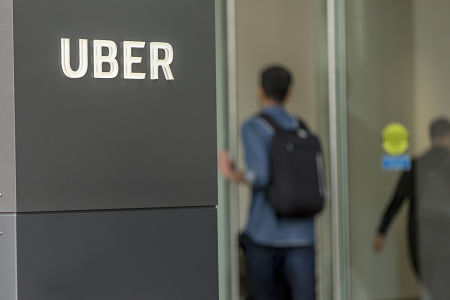Last year, Kansas City’s city council put into place regulations to govern transportation network companies (TNC).

Now the city is taking input from the public on proposed changes to those rules. The public comment period runs through August 17.
Key changes in the city’s proposed ordinance are as follows:
• 30-day temporary driver certificate issued when application submitted. Current ordinance does not include a temporary certificate.
• Discontinuation of driver orientation program.
• Insurance required during any ride-hail trip.
• Standardized background check conducted by city.
• Removal of declaration of fitness requirement.
• Increase in company’s annual vehicle permit fees using a sliding scale.
The current ordinance includes a 30-day driver orientation program where a certificate is not required; no insurance requirement for non-app trips; background checks by
outside companies; declaration of fitness requirement and unlimited vehicle permit fees set at $45,000.
Under the changes, TNC companies would have to submit names of all drivers to the city.
“The proposed changes will increase customer safety by requiring a standardized background check and closing a loophole regarding the 30-day trial period for drivers,” according to the city. “From the beginning, the city’s goal has been to protect public safety while modernizing regulations to offer multiple transit options for the public.”
Rick Usher, assistant city manager, said discussions on the proposed rules are centered primarily on safety.
“This is really a conversation about how effective the changes the council approved last year have been and where we think we need to go,” Usher said. “The major purpose of the code is public safety and beyond that is making access to new jobs.”
Usher said that he hopes to send the Kansas City Council a document of consensus on their proposed changes by this fall. Usher added that the city has discussed the proposed changes with Uber and Lyft, and plans to continue working with the firms.
The city received about 2,600 applications from Uber drivers in the fiscal year 2015 – 2016 — a more than 50 percent increase from the year prior, according to the city’s Regulated Industries Division. The city, however, offered permits to only 1,147 Uber drivers during that period.
While they’ve yet to be finalized, the prospective rules have not been greeted warmly by Uber. Lauren Altmin, Uber’s spokeswoman in Missouri, said that, if passed, the regulations would make new obstacles for drivers to join the company.
“After careful review, we find the proposed updates to Kansas City’s TNC regulations troubling,” Altmin said. “Drivers in Kansas City must already undergo a burdensome and duplicative process before they are licensed by the city. The changes up for consideration make it even more difficult for individuals to start earning money. We remain open to working with Regulated Industries, city council and Mayor James to find common ground for regulations that embrace innovation and promote economic opportunity.”
Ryan Weber, president of the Kansas City Tech Council, said ride-sharing options maintain Kansas City’s status as a tech-friendly city and that it must embrace the sharing economy to become a top tech hub in the Midwest.
“I hope they keep in mind the precedent they could be setting,” Weber said. “If they are unable to come to terms with the ridesharing companies and they ultimately shut down, there will be a lot of frustrated employers and riders in Kansas City. Our member companies have told us they exclusively use these services not just for business travel, but also to transport job candidates from the airport to the interview. It would be a big loss for our region’s ability to attract tech workers.”
Jim Ready, manager of Kansas City’s Regulated Industries Division, is also reviewing the proposed regulation changes and said the process needs to play itself out.
“It’s all just discussions at this point,” Ready said. “We’ve got thoughts and ideas but it could come to pass that we or the City Council won’t make any changes. We’re trying to figure out what works best. We want Uber to stay, we want Lyft to come and we want others to come in. We want business here — we don’t want to run folks out — but we’re also doing our best to safeguard the public.”
